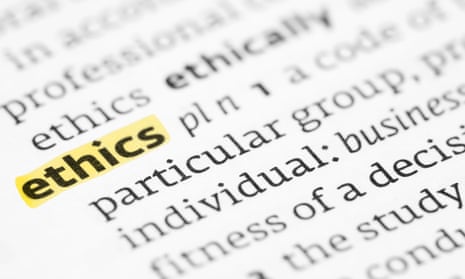Dictionary.com is making major changes to more than 15,000 of its definitions, from capitalising Black to updating entries about sexual orientation, aiming to foreground people over “clinical language”.
On Tuesday the website, which with 70m monthly users describes itself as the world’s leading digital dictionary, released what it called its largest ever update.
Across the board, Dictionary.com’s language referring to LGBTQIA people has been revised to change “homosexual” to “gay” and “homosexuality” to “gay sexual orientation”, with the dictionary saying that the changes would put “the focus on people … removing the implication of a medical diagnosis, sickness, or pathology when describing normal human behaviours and ways of being”.
It has also capitalised Black, a change that affects hundreds of entries, in what it said was “a mark of respect and recognition that’s in line with capitalising other cultures and ethnicities”. And it has added a separate entry for Black, as it refers to a person, a move that breaks with dictionary conventions to group together words that share the same origin.
“This change reflects Dictionary.com’s point of view that language entries have consequences and go beyond being simply an academic exercise,” it said.
Another major revision updates language used around suicide and addiction, with use of the phrase “commit suicide” removed and replaced with “die by suicide” or “end one’s life”, while instances of “addict” as a noun are replaced with “person addicted to” or “habitual user of”. It said the changes were intended to eliminate language that implied moral judgment or incorporated historical prejudice.
“2020 has been a year of change like never before, affecting how we live, work, interact – and how we use language,” said Jennifer Steeves-Kiss, chief executive of Dictionary.com. “Our biggest release yet represents a tireless commitment from our entire team not only to documenting how language evolves, but to ensuring our users always find the meaning they need.”
Along with the revisions, Dictionary.com has added 650 new entries, from words relating to race and ethnicity (such as Afro-Latina and Afro-Latino) to those reflecting environmental issues (such as ecoanxiety) or sexuality (such as ace, referring to asexuality). Abbreviations used on social media, such as af (“as fuck; to a great degree”), DGAF (“to not care at all; a euphemistic initialism used to indicate an indifferent or unbothered attitude, without explicit vulgarity”), and slang terms such as jabroni (“a stupid, foolish, or contemptible person; loser”) and janky (“untrustworthy; disreputable”) have also been added.
“The work of a dictionary is more than just adding new words. It’s an ongoing effort to ensure that how we define words reflects changes in language – and life,” said senior editor John Kelly. “Among our many new entries are thousands of deeper, dictionary-wide revisions that touch us on our most personal levels: how we talk about ourselves and our identities, from race to sexual orientation to mental health. Our revisions are putting people, in all their rich humanity, first, and we’re extremely proud of that.”
